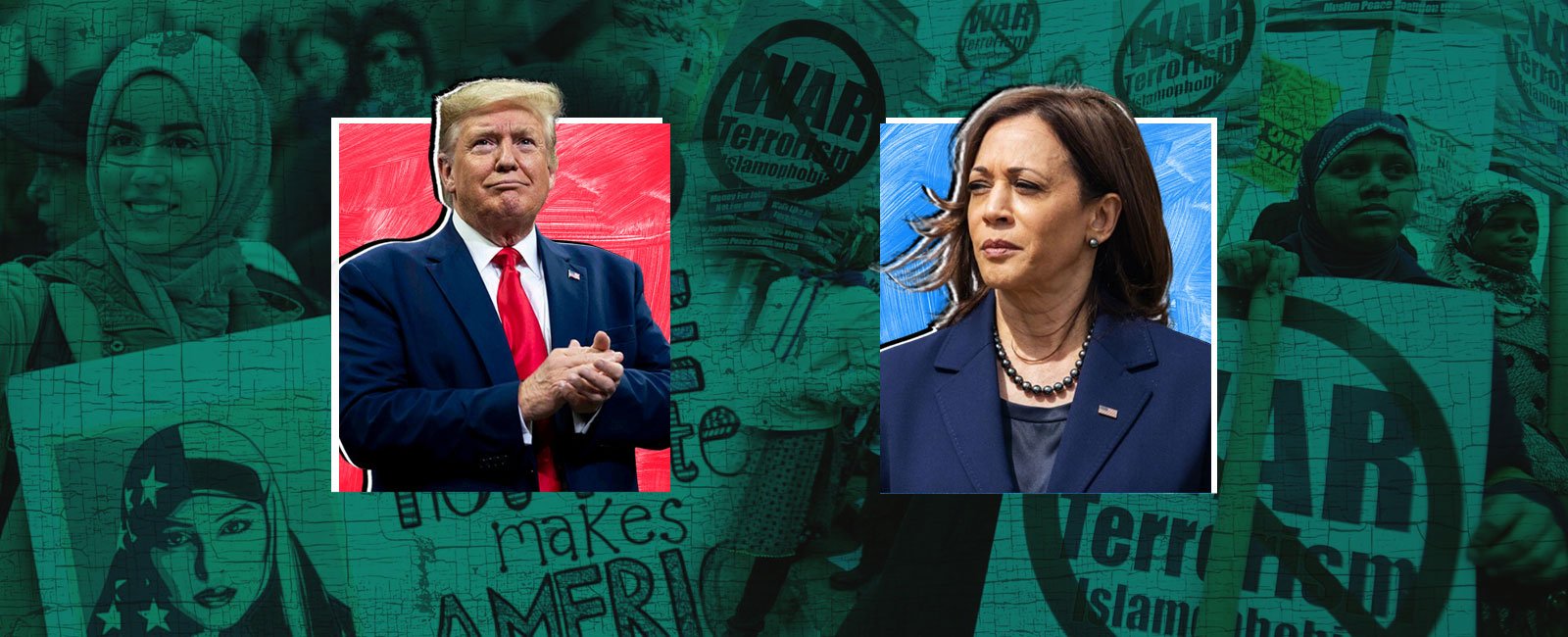US presidential elections 2024: Which way will Pakistani American voters lean?
Pakistani diaspora is focusing on predominantly two issues: war in Gaza and release from prison of former prime minister Imran Khan, says Javed, a Democrat

With battle lines drawn for the US presidential election, former President Donald Trump and Vice President Kamala Harris brace for a tough electoral showdown, and one can't help but wonder: which side of the fence will the Pakistani American community land on?
If one were to crunch the numbers, 625,570 individuals identified themselves as Pakistani Americans out of a total population of 300 million in the US, according to the US American Community Survey in 2021. Those eligible to vote would be even fewer in number.
Pakistani Americans form the seventh-largest Asian American ethnic group in the United States and the second-largest South Asian American ethnic group. They are also recognised as one of the largest Muslim American communities in the US and are found in large concentrations in places such as New York City, Washington DC, Houston, Chicago, Dallas-Ft. Worth, Los Angeles, San Francisco, Baltimore, Philadelphia, and Atlanta, according to data from Pew Global Research in 2019.
But what are the most pressing issues for the Pakistani American community in the upcoming US presidential election?
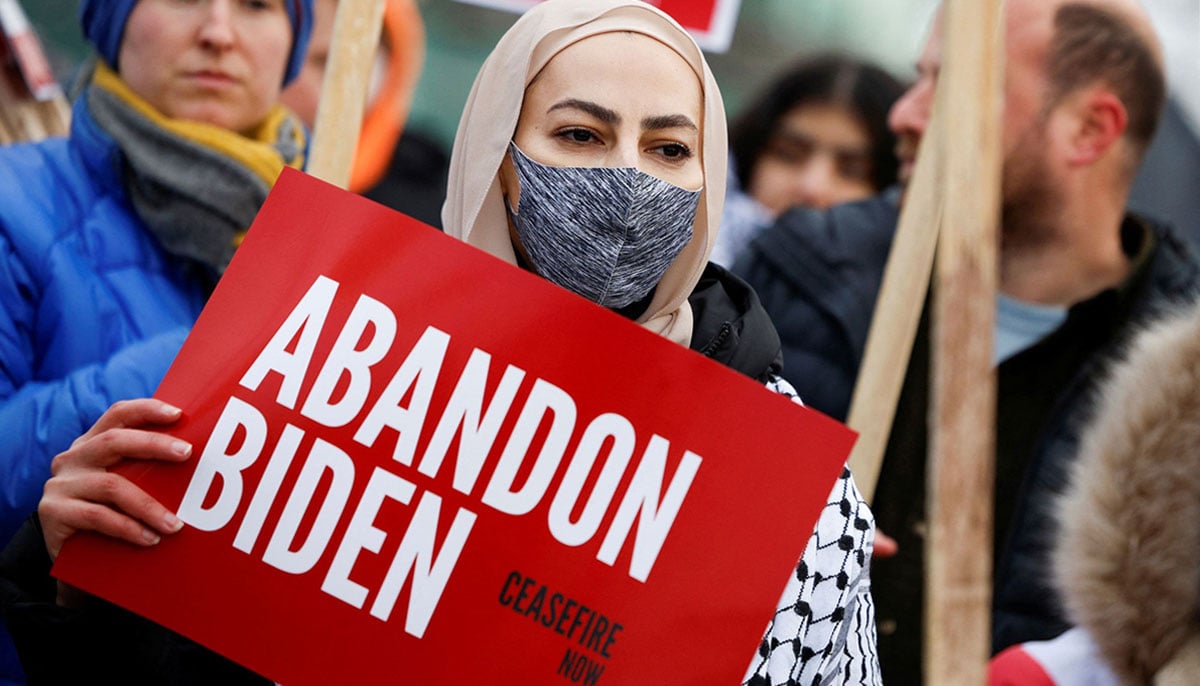
They asked Biden to push for a permanent ceasefire in Gaza, condition aid to Israel, and encourage sympathetic Democrats to vote 'uncommitted' in the primary to signal that Biden could lose their support in November's general election, aiming for 10,000 votes.
Tahir Javed, a Pakistani businessman and member of the Democratic Party, said the Pakistani diaspora in the US is focusing on predominantly two issues: the war in Gaza and the release from prison of former prime minister Imran Khan.
"The Pakistani community is split in huge numbers now," Javed told Geo.tv. "For some, their top issue is Imran Khan, and they want to see him released from jail. Then, there are people whose major focus right now is [Gaza], and they don't want to talk about anything else," he added.
In the last two elections, Pakistani Americans have mostly preferred to back Democratic candidates.
Data from the Asian American Legal Defense and Education Fund shows that 88% of Pakistani Americans voted for Democratic presidential nominee Hillary Clinton in 2016, and 89% supported Joe Biden in the 2020 presidential election.
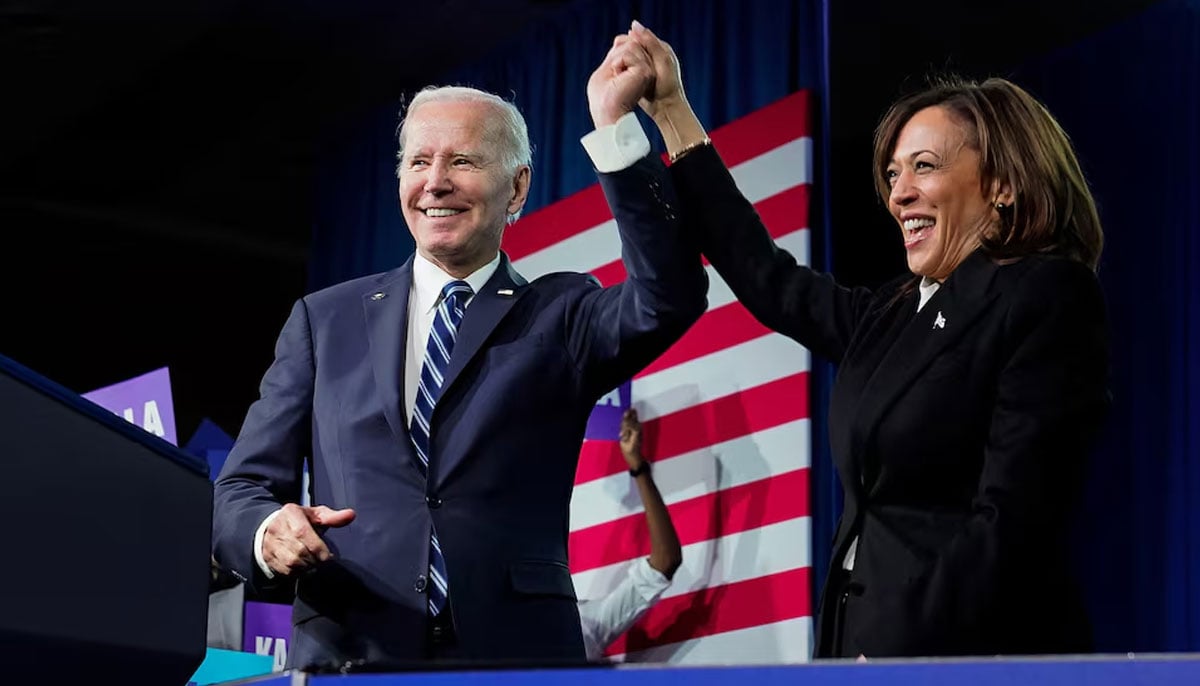
Despite sparring on Twitter at first, Trump and Khan shared a good rapport, which was evident from their meeting in 2019. Many Pakistani Americans believe Trump in office could press Islamabad to release Khan from prison.
Another reason Pakistani Americans may prefer Trump over Harris is the Gaza war. The Biden administration's controversial and brazen support for Israel's military assault on Gaza, which has killed over 40,000 Palestinians, has come under significant criticism and scrutiny.
Michael Kugelman, the South Asia Institute Director at the Wilson Center, noted that Gaza was a pressing issue not only for Pakistanis but for the entire Muslim population around the world.
He acknowledged that many Pakistani Americans were rallying behind Trump, believing it would benefit the Pakistan Tehreek-e-Insaf (PTI). However, he added, Trump wasn't courting Khan in 2019 simply because he liked the cricketer-turned-politician personally. Rather, he wanted Khan to use his influence to bring the Taliban to the negotiating table.
"Trump may have liked him, but if Trump were to come back to power, he would not be thinking about how he could help Imran Khan," Kugelman noted. "That would certainly not be among his priorities."
'Non-committed'
Arsalan Iftikhar, an American human rights lawyer, told Geo.tv that Pakistani Americans have voted Democrat because the Republican Party has been "responsible for most of the Islamophobia and anti-Muslim policies we have seen in the US over the last 20 years."
Iftikhar, who is also the founder of the GeoMuslim Institute, a global Muslim watchdog, warned the Pakistani community that if Trump were to come into power again, it would "make the world a more dangerous place."
However, the voters we spoke to said they were still undecided, as the issue of Gaza left them confused, though they have traditionally leaned Democrat.
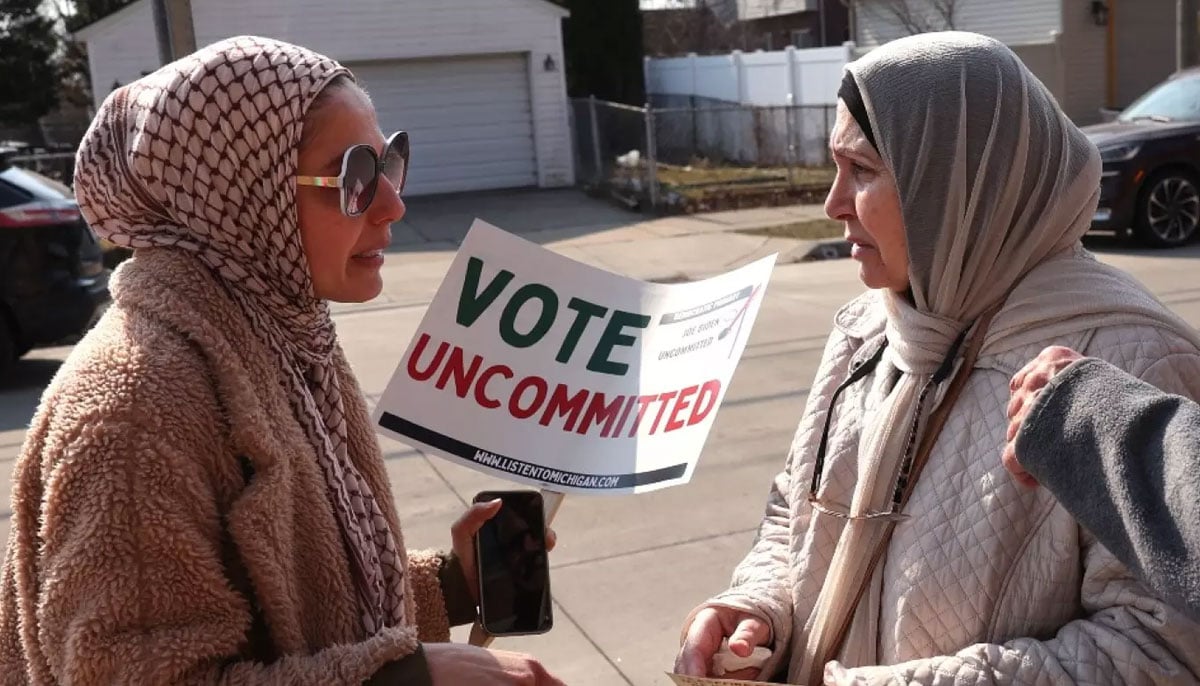
Urooj Azani, a child and adolescent psychiatrist based in Chicago, Illinois, told Geo.tv that there are certain values she upholds that align with the Democratic Party. However, the complexities of the humanitarian crisis we are witnessing all over the world, particularly in Gaza, have made it difficult for her to connect and commit to any candidate or party.
"Previously, I have been a lifelong Democrat and have voted Democrat down-ballot as well as in the presidential elections. But, given the current political landscape, I think we as Muslims and as Pakistani Americans, and just as Americans in general, find that the political landscape presents a challenging dichotomy between the major parties."
Taimur Gill, a Dallas-based cardiologist, also said that he was among the "non-committed voters."
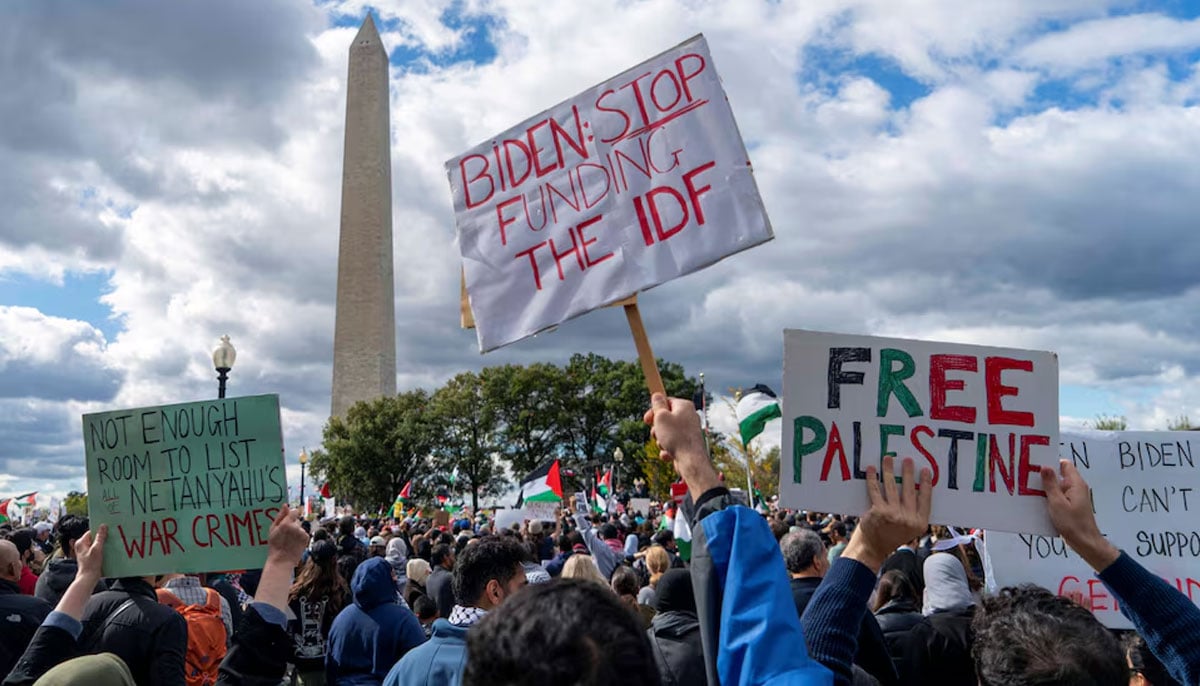
He also mentioned that he had voted along Democratic Party lines but stressed that "we cannot turn a blind eye to what's happening in Gaza with continued Democratic support for Israeli incursions."
Sahar, a Texas-based Pakistani-American, told Geo.tv that she would be voting for a third-party candidate as neither of the major parties was an option anymore.
"I will be voting for Jill Stein and mostly Green Party candidates if I vote at all [...] because Democrats have been a huge disappointment in the last four years and I am definitely not voting for Trump.
I hate that we are asking to choose the lesser of two evils, when the truth is they are both evil," she added.
'No such impact'
Pakistani-American businessman Shahid Ahmed Khan said that since the Pakistani diaspora is scattered across the US, they have "no such impact" in terms of the vote.
Shahid, who is also a member of US President Biden's Advisory Committee on the Arts and a Democratic Party member, told Geo.tv that the Pakistani diaspora can influence policies through their finances.
"I think that Pakistani Americans, whichever candidate they support, should maximise their financial contribution," he noted. "That will have an impact."
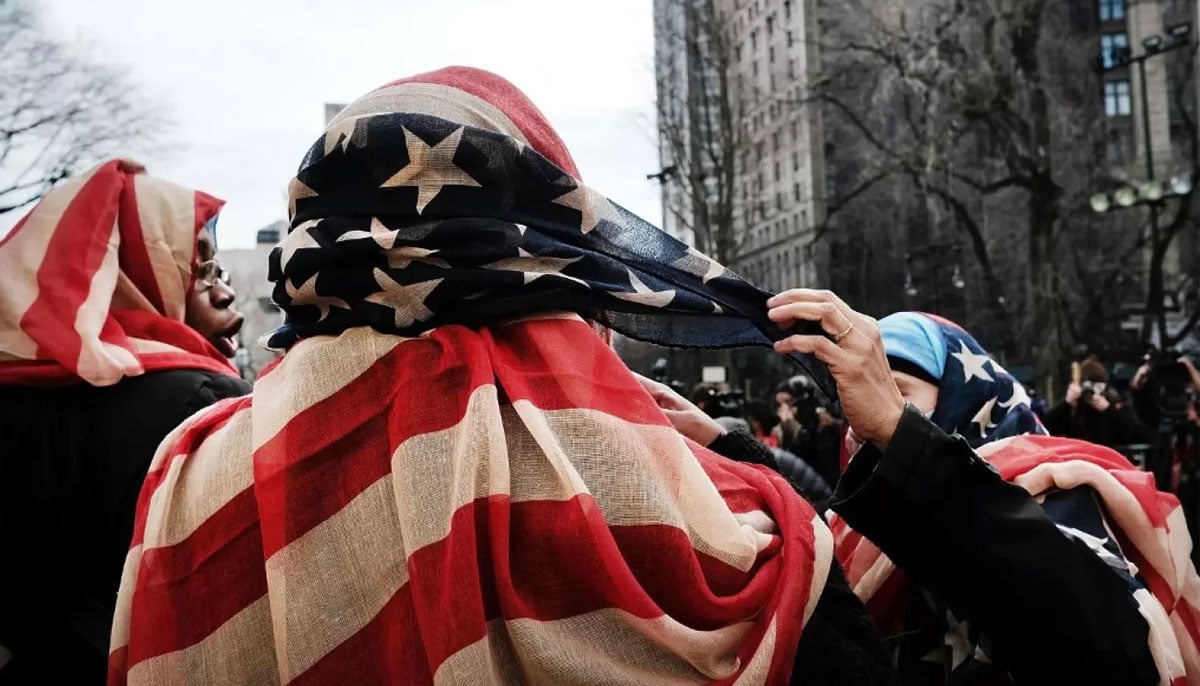
Mo Nehad, a Pakistani American Republican activist in Fort Bend County, Texas, agreed with Shahid. However, he regretted that the Pakistani American community does not use its finances effectively to influence policies.
"We can influence one of the largest, one of the most powerful Congresses in the world," he said. "But we choose not to do that, and we're letting other people do it."
Change in foreign policy?
For some time now, Pakistan and the United States have maintained steady relations — neither too fraught nor too friendly.
While there has been no publicly discussed call between the two countries' leaders, there has also been no hard-hitting exchange of statements.
When asked whether he sees a drop in US-Pakistan relations if Trump were to come into power, Shahid said: "There won't be much of a decline when it comes to American foreign policy; American foreign policy does not change too quickly."
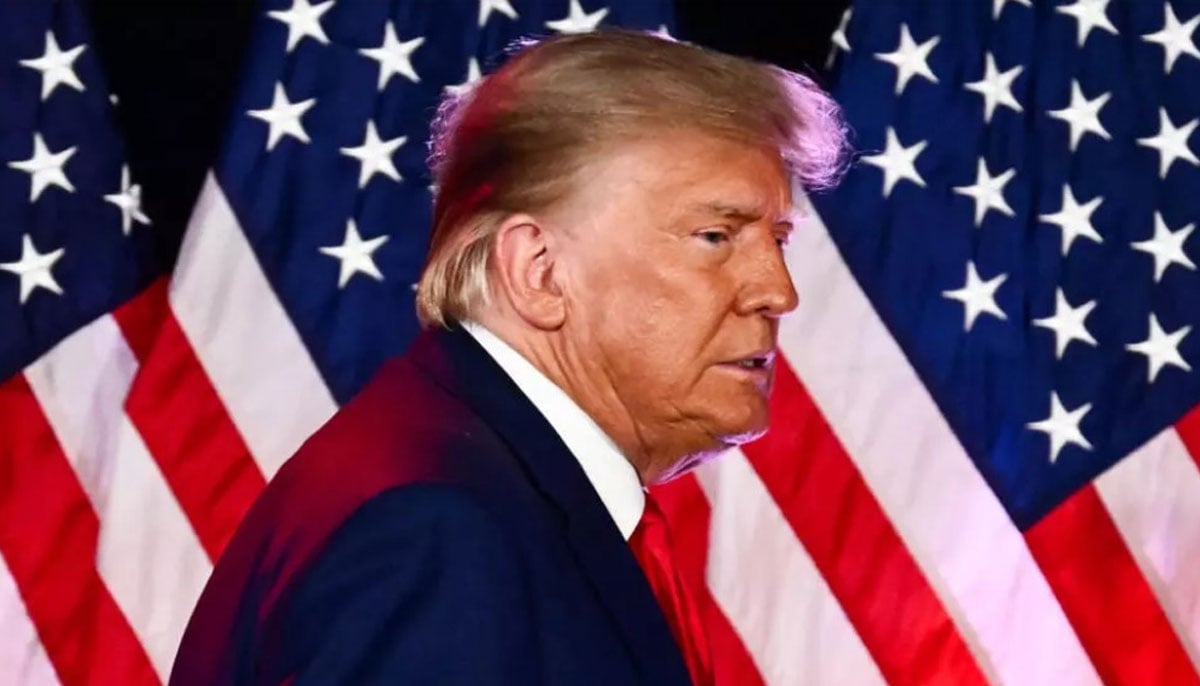
He added that multiple angles and think tanks are involved. "During Donald Trump's tenure, it seemed like the US-Pakistan relationship would change, but nothing practical happened."
Taking the conversation forward, Javed said that for both parties, Pakistan was not among their priorities, and they "really don't see Pakistan in the top 10 or 15 or 20 concerns or issues at this stage."
While Harris leads Trump in most polls being conducted, it is still early to say who might come out on top on November 4, as two presidents who did not win the popular vote — Trump and George W. Bush — have won recently.
Additional input by Husba Thanvi and Raja Akhtar Zahid Khanzada.
Khawaja Burhan Uddin is a staffer at Geo.tv. He posts on X @Khawajaburhan6
— Header and thumbnail image by Geo.tv



